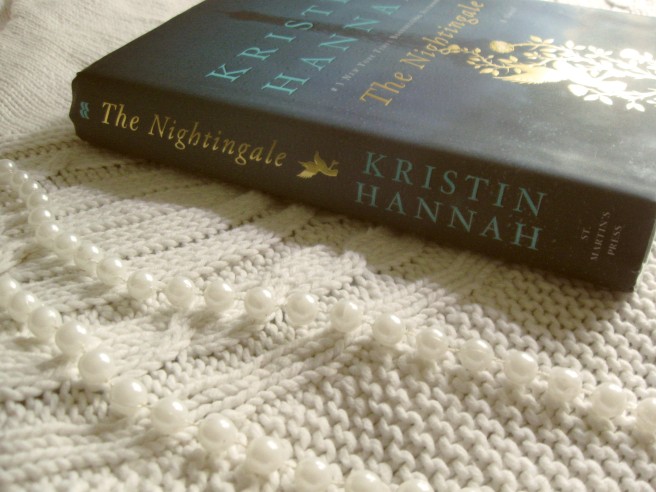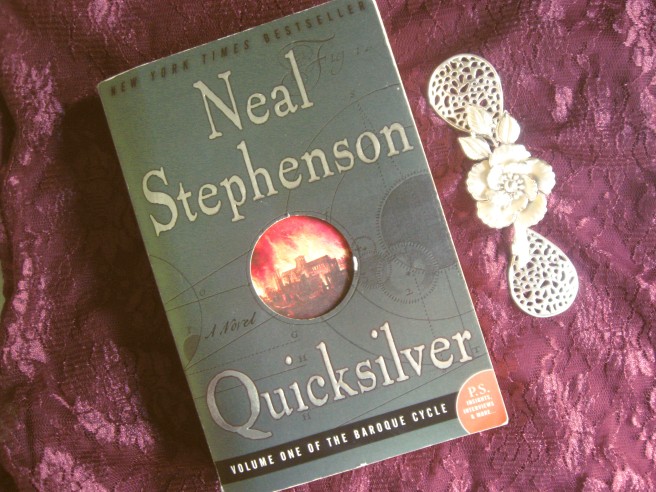
#119 – The Nightingale, by Kristin Hannah
- Read: 8/23/18 – 8/26/18
- Challenge: Mount TBR (108/150)
- Rating: 5/5 stars
I kept putting off reading this because I’ve read so many books set during WWII, and I wasn’t sure I wanted more war.
But this stands above so many other war novels I’ve read, because it’s about how the women fought. Not on the front lines, but in secret, or in their everyday lives.
Two sisters in occupied France handle the war in remarkably different ways, one by becoming increasingly involved in the Resistance, eventually forming an escape route for downed airmen; the other doing her best to keep her head down and her nose out of trouble, in order to protect her family, until a series of difficult events and choices lead to her hiding Jewish children from the Nazis.
This book is a masterful exploration of so many things–how women’s roles in wartime are often overlooked or forgotten; how deep and binding the ties of family can be; how love and friendship can be found in unexpected and sometimes unwelcome places; how difficult it is to move on.
I’m not ashamed to admit the last few chapters had me in constant tears.

#120 – Quicksilver, by Neal Stephenson
- Read: 8/27/18 – 8/30/18
- Challenge: Mount TBR (109/150); PopSugar Reading Challenge
- Task: A novel based on a real person
- Rating: 4/5 stars
[About the task: this qualifies with dozens of characters, as it’s historical fiction dressed up with three fictional main characters. Arguably, however, the entire trilogy is about Isaac Newton; but the entire Royal Society is part of the cast, as well as most of the monarchs and many of the high nobility of Europe at the time.]
I like the books of the Baroque Cycle for the same reason I loved Les Miz, back when I first read it–they’re works of immense scope that still never fail to feel personal, to care deeply about the inner lives of their characters.
Since it’s been many years since I read this, I was wondering if, on this re-read, I would finish by upgrading it to five stars. I dashed off this rating from memory, when I discovered Goodreads and attempted to catalogue everything I’d read previously.
But in the end, I can’t. I found myself skimming from time to time, when huge chunks of setting description loomed, or the few scenes that were styled as plays. I didn’t like them the first time, and in a work this complex, I don’t mind skipping the punchy political witticism occasionally, to get to the part where it’s explained. There’s a lot to be said for an author letting the reader put 2 and 2 together themselves, and sometimes I could; but sometimes I wondered if Stephenson was asking me to do calculus with this dribs and drabs of information instead.
I did take calculus back in high school, and I passed, then promptly forgot it all when I never used it again.
This story is both massive and massively impressive, with its fine twining of historical fact and modern fiction, the contrast between scientific impulse and human foibles, the occasional salaciousness set against some truly Puritanical attitudes. I enjoyed it before, and I did again this time around; I recommend it, especially if you’re interested in the history of science; but it’s not perfect, and maybe could have been a hundred pages shorter without really losing anything but ambience.
“But this stands above so many other war novels I’ve read, because it’s about how the women fought. Not on the front lines, but in secret, or in their everyday lives.” This makes me think you’d like The Alice Network, if you haven’t read it already.
LikeLike
I haven’t, but I’m always up for book recommendations, so I’ll check it out, thanks!
LikeLiked by 1 person